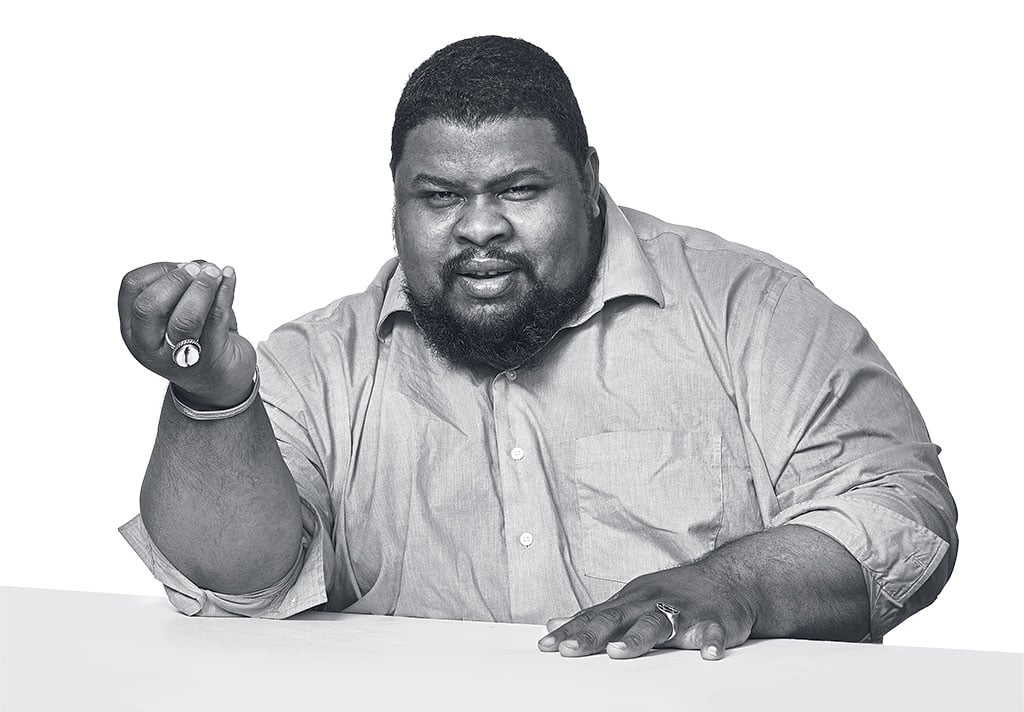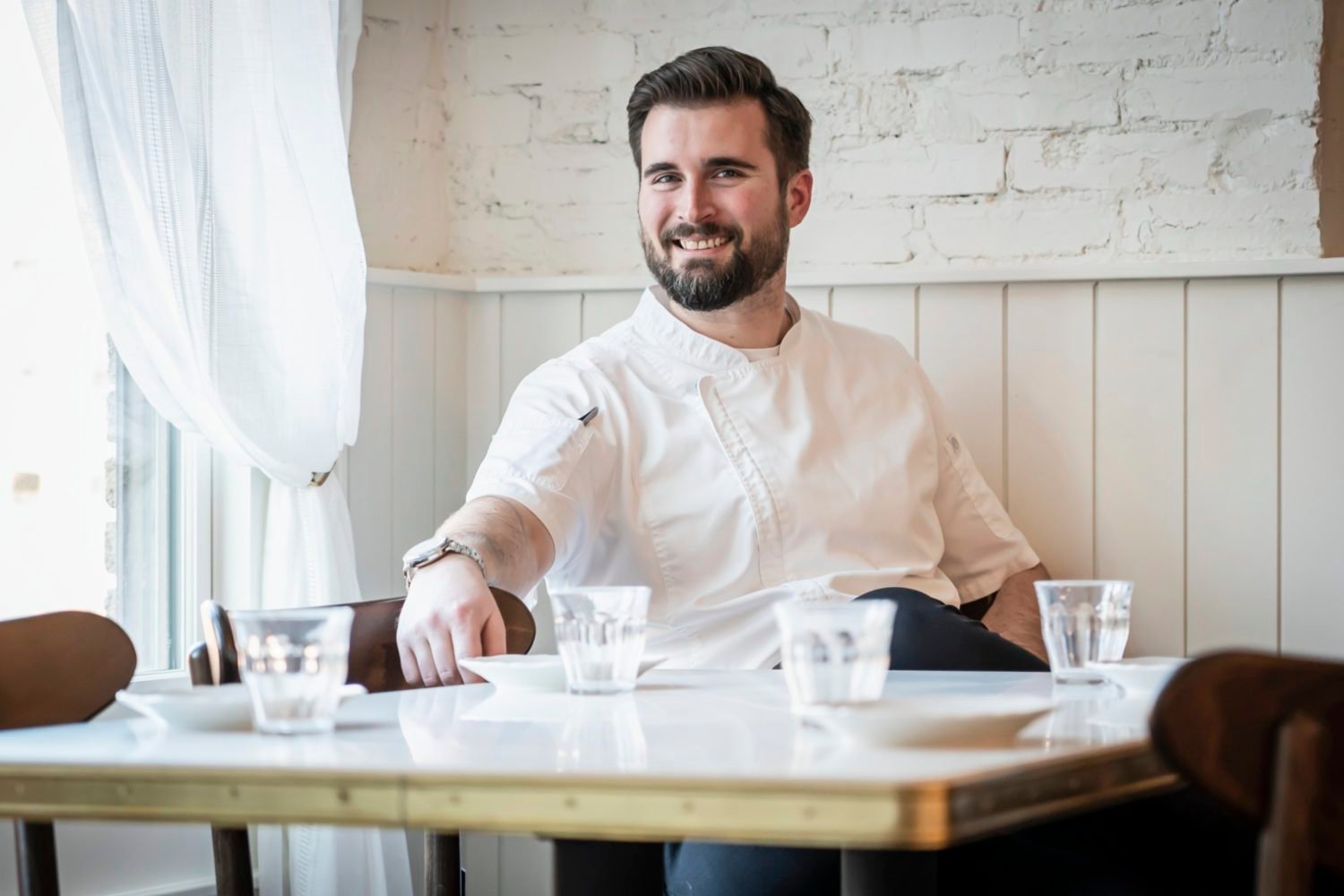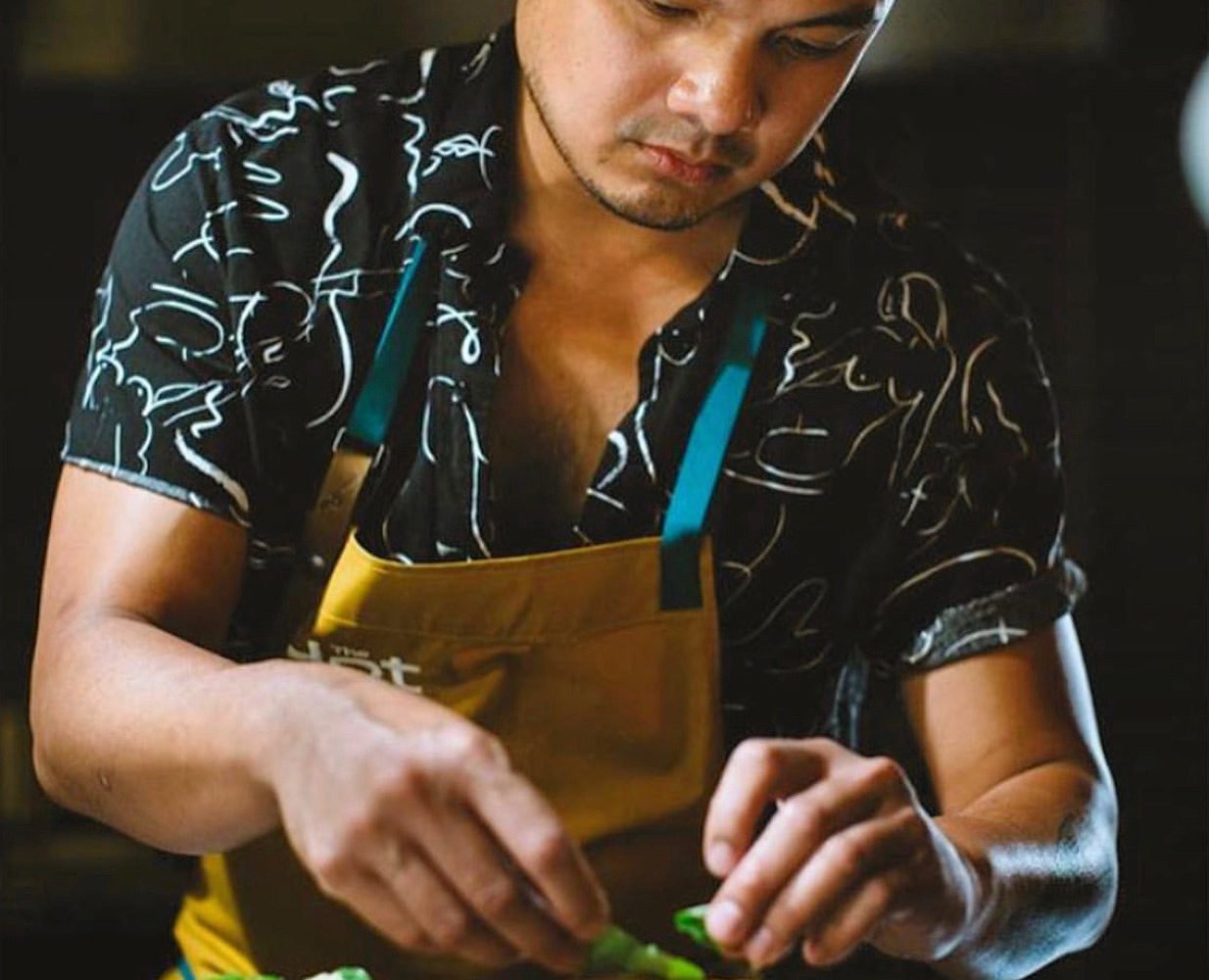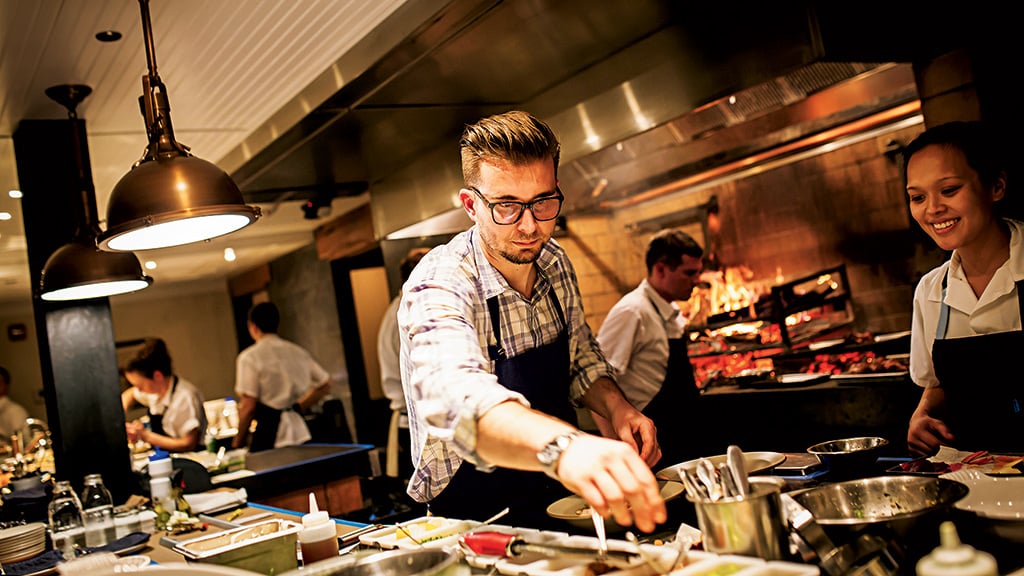Michael Twitty wanted to meet at a Dunkin’ Donuts off Rockville Pike. The table near the front is where the blogger and food historian wrote most of his memoir, The Cooking Gene: A Journey Through African-American Culinary History in the Old South, which was inspired by a crowd-funded road trip he took in 2012. The Washington native called the trip his Southern Discomfort Tour, in which he traveled from DC to Louisiana and back in search of his family tree and its culinary roots.
Twitty has spent his career fighting for the recognition of African-American chefs, taking on boldface names such as Paula Deen and Bill O’Reilly in the process. Before his book’s August release, Washingtonian talked to the outspoken author about racism in the food industry, his reasons for replicating slave cooking, and the future of the local restaurant scene.
Is Washington a Southern city?
Black Washington is definitely Southern. Washington was a slave-trading city, built by enslaved people’s labor. It was a city surrounded by plantations in Maryland and Virginia. It was a city of Jim Crow. Segregation ruled the day.
But apart from those aspects, the food of Washington was Southern, historically speaking. The culture and mores were Southern. During the Great Migration, people came up from North Carolina, South Carolina, over from Southern Maryland, up from Virginia, and still held their connection to back home.
Your grandmother lived on Kennedy Street in Northwest DC when you were young.
The kitchen had seafoam-green paint, and the little table on the side was my hangout. My grandmother would make bread for everybody. It was very communal. If people wanted bread, they just showed up.
That was one of my favorite places in the world—that table, just absorbing the flow. When people came into the house, when my uncles came back from work or from school, the first thing they would do was go and greet my grandmother in the kitchen.
You’ve said there was a lot of diversity in Montgomery County where you went to high school.
We had all these people from different parts of the world, so we would be sitting there eating pupusas or squid chips. When I went back for my 20th reunion, I gave a little talk. I said: We are so lucky. I travel all around the world and all around this country and go to schools, and not everybody grows up outside their bubble. They don’t get to talk with people who look different from them, who eat different food. We had 47 flags at Albert Einstein High School for the different parts of the world that our student body came from.
You call yourself a living-history interpreter. What does that mean?
An interpreter is not a reenactor. I’m not reenacting slavery. I would be an idiot if I reenacted slavery. Interpreters are there to bring to light the past. I’m a 21st-century person who is there to educate you about the people of the past and to make you understand they are just as real as you and me.
There’s something to wearing those clothes and being in a group of people who are also African-American. The ancestors have come back to life. They’re all with you in that moment.
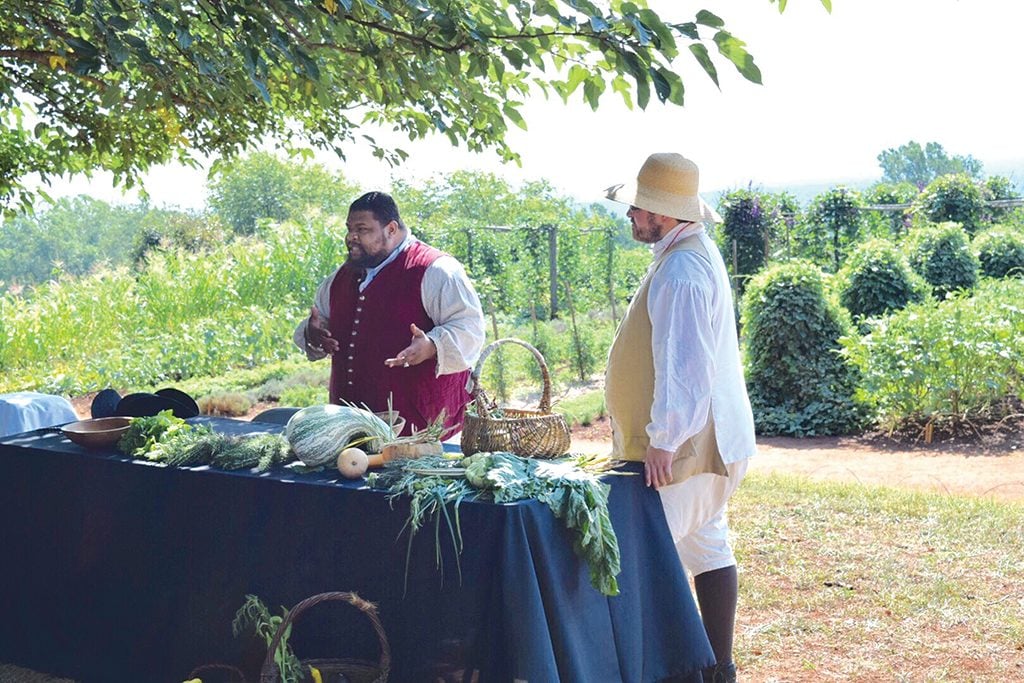
You see the plantation as a place of reclamation. Why?
It’s a place we so often run away from—a lot of us are scared of it, with good reason. The very fact that I’m free, literate, and able to tell my story and my ancestors’ story in a place where I was never meant to be free and literate or self-actualized—that’s a victory.
You caught the interpreting bug as a kid visiting Colonial Williamsburg.
My dad bought me a book, Colonial Virginia: A Picture Book to Remember Her By. There was a picture of a young black interpreter making candles. I thought, “I want to be that guy.” Now I see him every time I go to Williamsburg—he’s still working there. Mr. Robert Watson is an interpreter. He’s a real mentor and a real teacher.
Southern food does get a lot of attention these days, but have white chefs gotten too much credit for that renaissance?
Oh, yeah, because they’re not the only ones. But black folks can’t get brick-and-mortar restaurants in prime real estate to show off their talent. We’re still on the side of the road making barbecue or still in the hood with a soul-food shack, and no one knows we’re there.
You’ve been critical of the attention paid to Charleston chef Sean Brock in particular.
Yes. He goes to Senegal and he is discovering the African roots of Southern cuisine for all of us. That’s nonsense. There are all these people who have gone way before him. It’s not about him personally—it’s the way society tends to put weight and cultural capital behind certain people because they’re more comfortable, they’re more familiar.
We have very different platforms. I appreciate what Brock’s doing on his platform, and I think his love is sincere. It’s not exploitative. But when the media around him makes him out to be the great white hope and savior—they may not explicitly say the word “white,” but they don’t have to.
Brock’s protégé, Jeremiah Langhorne, opened the Dabney in DC, and he’s using these foraging, heirloom techniques, but for the Chesapeake. What do you think about what he’s trying to do?
We actually sat down together very early on, before I had made peace with his mentor. I went down to DC with a carry-on bag full of stuff—I gave him books and copies of material that I had used in my research. We talked about the shape of the project. We haven’t talked in a long while, but I sent him away with a lot of homework.
Why do you think DC has emerged as a foodie city?
I hate to be a downer, but I think the population shift in the city and gentrification have had a lot to do with that. They’re filling a need. The need is to have these cute boutiques and little cafes and eateries.
People often ask me—I’m going to get in trouble with this one—“What’s your go-to place in DC?” I don’t really have one. I remember growing up and going to Hogs on the Hill with my father. That was a spot. I remember the Ebony Inn, though I don’t know if it was a bar or an exotic-dance place, but I’m here to tell you the ribs were on-point. I don’t eat them anymore, but growing up, the whole half-smoke culture was big in my household. And we were definitely a crab-eating family.
I would like to see our food scene embrace more of the food of the Chesapeake and the upper South, because that’s where it historically was centered.
You converted to Judaism. How do you connect your African-American food traditions with your Jewish food traditions?
I am working on a project on my Jewish roots and food and on my Jewish connections and faith. I’m trying to make an arc: African-American, Jewish, gay—food and my identity in each one of those cases.
Why write a food memoir as opposed to a history or a cookbook?
Part of the book was writing about the legacy that we’re still doing this—we didn’t go anywhere. Yes, I’m talking about the inequalities. Yes, I’m talking about the brick walls and the borders and the problems we face. But there’s an inner-city farmers market in Atlanta. There’s a black chef and farmer, Matthew Raiford, on land his great-great-great-granddaddy owned. These are positive things. We have a lot to celebrate, not the least of which is being able to reclaim our heritage.
It’s very important to me that Southern people see themselves as a family, but it’s also very important that we see ourselves as American. Our time and our blood and our plates have made us connected in ways like nobody else on the face of the planet.
This article appears in the August 2017 issue of Washingtonian.

